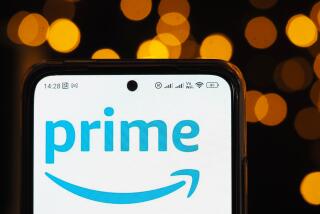Another reminder of the benefits of wireless competition
- Share via
Six years ago, The Times’ editorial board wrote a piece titled “The Math of the Market,” which argued that there was something special about having at least four companies competing in every segment. It started this way:
There are four major record companies, four national wireless phone carriers, four Baby Bells and four international auditing firms. Mere coincidence? Perhaps not. Each of those industries has consolidated in the last decade, and the ranks of music and phone companies may shrink further if pending or rumored deals win approval. The increasing concentration in these and other market segments has forced antitrust officials around the globe to grapple with a fundamental question: How many competitors do you need to generate real competition?
Lately, the answer often given by federal regulators is “four.”
The world has changed a bit since then -- there are only two Baby Bells, for instance, and the biggest of the four major record companies is awaiting regulators’ approval to buy the smallest. But I was reminded of the value of having at least four competitors this week, when T-Mobile announced plans to restore an honest-to-goodness unlimited data plan for smartphone users.
You might recall that AT&T; tried to buy T-Mobile, only to have the Justice Department put the kibosh on the deal by threatening an antitrust lawsuit. Advocates of the merger had argued it was in consumers’ best interests because it would give AT&T; more spectrum. Opponents responded that AT&T; had plenty of spectrum already that it wasn’t using, and an independent T-Mobile played an important role as a low-priced alternative to the big carriers.
T-Mobile’s announcement that it would resume offering unlimited data plans in September (its current plans offer users high-speed access up to a limit of 2, 5 or 10 GB, after which point the data may be delivered at a notably lower speed) puts more pressure on AT&T; and Verizon Wireless to offer better value in their data packages. Verizon has gone the other direction, shifting smartphone users toward all-in-one plans that raise costs for many customers.
Granted, T-Mobile isn’t breaking new ground here. Sprint and prepaid mobile operator MetroPCS offer unlimited data plans too. But T-Mobile brings different phones and prices to the market, as well as different strengths and weaknesses to its network. The result is more choice for consumers, which is something they wouldn’t have gotten had AT&T; succeeded in gobbling up T-Mobile.
ALSO:
Obamacare ‘raids’ Medicare? Not exactly
Kinsley: Paul Ryan prepares to lead, guided by Ayn Rand
McManus: Gridlock likely in Washington no matter who wins
More to Read
A cure for the common opinion
Get thought-provoking perspectives with our weekly newsletter.
You may occasionally receive promotional content from the Los Angeles Times.






